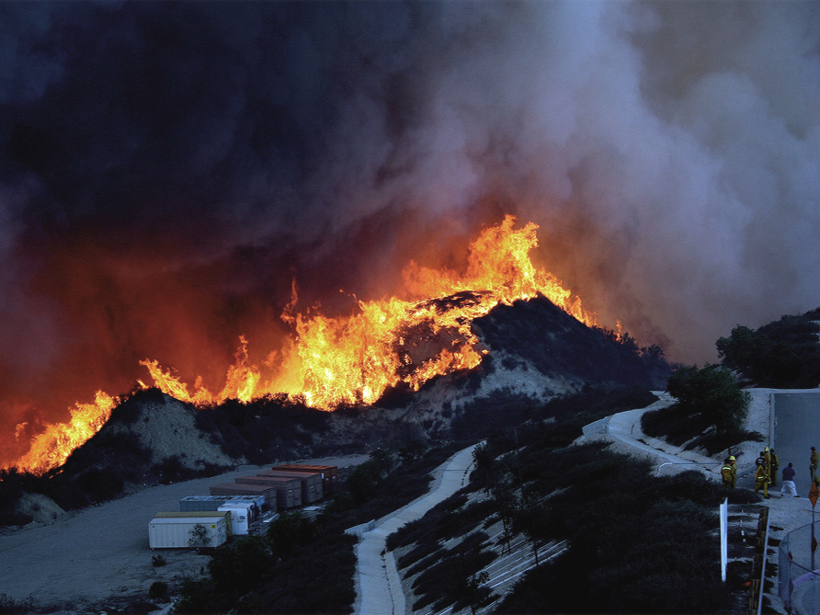Nuclear winter has captured the collective imagination of the world since the uneasy days of the Cold War between the United States and the Soviet Union. In this hypothetical climate scenario, smoke from the fires ignited by nuclear explosions blocks out the Sun, leaving the Earth’s surface dark, cold, and dry and the Earth’s inhabitants at the mercy of a global famine. Today, nuclear weapons are no longer the prerogative of a few select countries; a detonation of less than 1% of the global nuclear arsenal could alter climate at a scale and pace that are unprecedented, even for the Anthropocene.
To find out what effect those potential changes could have on China—the largest producer of grains in the world—Xia et al. used three climate model simulations that mimicked the effect of 100 atomic bomb explosions starting fires that release 5 teragrams of soot into the atmosphere above India and Pakistan. For comparison, the explosive power of these detonations is less than 0.03% of that of the global nuclear arsenal.
The models predicted changes in the air temperature, precipitation patterns, and the amount of solar radiation that reaches the Earth’s surface. The researchers applied those climate simulations to crop models to simulate crop production at 51 locations across China during a 10-year cold period following this “small” nuclear war.
The simulations demonstrated that a regional nuclear conflict between India and Pakistan—or any conflict that infused the upper atmosphere with at least 5 teragrams of soot—could result in lower yields of rice, maize, and wheat at most of the locations across China. The authors conclude that reduction in agricultural production would have a profound impact on the more than 1 billion people living in poverty in the world.
Given that any climatic changes that affect crop production in China are likely to impact agriculture in countries at similar latitudes, including the United States, the authors speculate that a regional nuclear war could lead to a global famine. (Earth’s Future, doi:10.1002/2014EF000283, 2015)
—Kate Wheeling, Freelance Writer
Citation: Wheeling, K. (2015), Regional nuclear war could cause a global famine, Eos, 96, https://doi.org/10.1029/2015EO029691. Published on 15 May 2015.
Text © 2015. The authors. CC BY-NC 3.0
Except where otherwise noted, images are subject to copyright. Any reuse without express permission from the copyright owner is prohibited.

